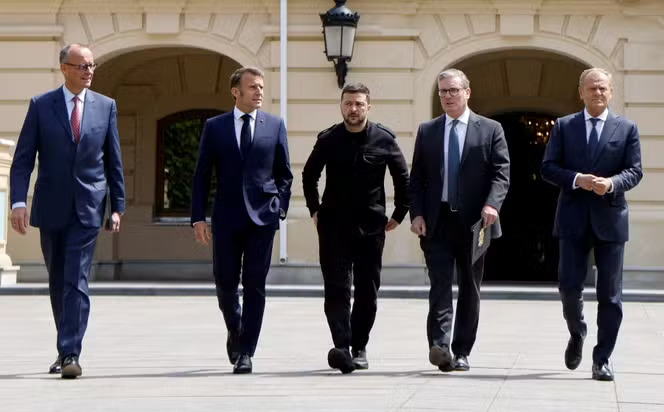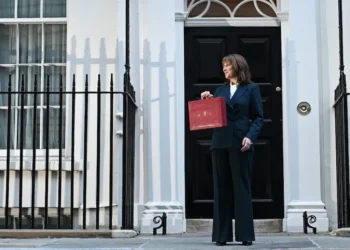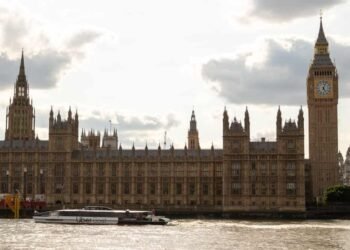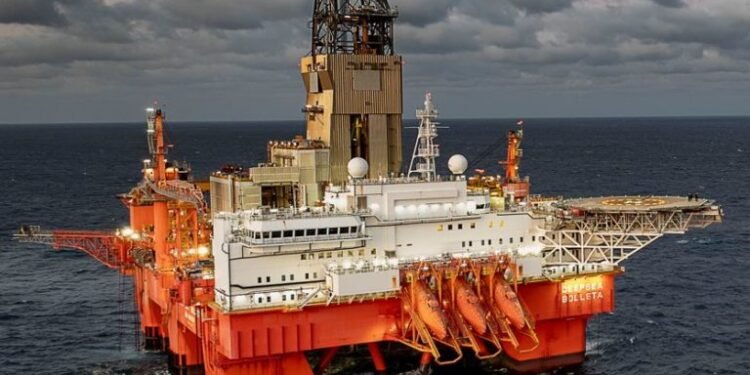European leaders from the“coalition of the willing” are preparing for a crucial conference call on Sunday, just hours before high-stakes talks between Ukraine’s Volodymyr Zelenskyy and President Donald Trump in Washington.
The coalition, co-chaired by UK Prime Minister Keir Starmer, France’s President Emmanuel Macron, and Germany’s Chancellor Friedrich Merz, was established with the primary goal of uniting countries behind efforts to secure a lasting peace agreement in Ukraine.
At the top of Sunday’s agenda is winning a concrete commitment from President Trump on providing a security guarantee that could serve as a powerful backstop in any future Russia-Ukraine peacekeeping arrangement. European leaders believe American involvement remains vital, with US military strength seen as the ultimate deterrent against future advances by President Vladimir Putin.
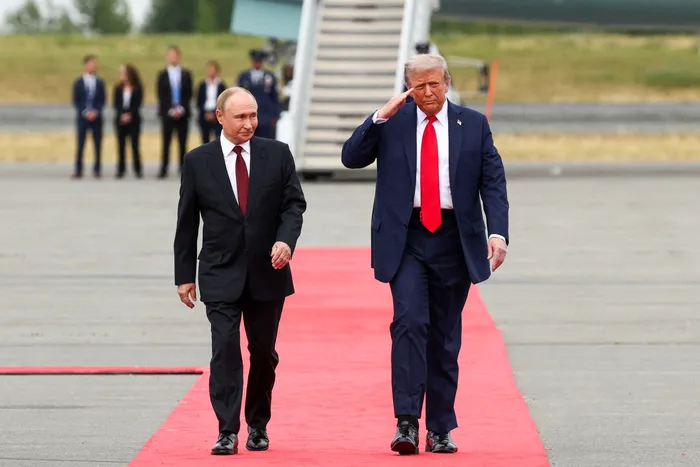
Officials have been cautiously optimistic following President Trump’s recent hints of support. However, persuading his unpredictable administration to take a firm stance has always been a challenge, and leaders recognize that success is far from guaranteed.
Another pressing issue on the table is how to ensure President Zelenskyy has a more central role in upcoming peace negotiations. His exclusion from the earlier Trump-Putin talks in Alaska left him sidelined, a move European leaders have warned risks undermining any durable peace. In coordinated statements, they stressed that “peace cannot be achieved without him.”
Zelenskyy’s Role Central To Future Talks
The coalition has pledged to push for Zelenskyy’s full participation in discussions, arguing that no settlement can hold if Ukraine itself is not directly involved in the negotiations. President Zelenskyy, meanwhile, has confirmed that he will travel to Washington on Monday after what he described as a “long and substantive” conversation with President Trump.
The broader coalition of the willing was first formed in March after President Trump’s return to the White House, when he signaled that Washington would not provide Europe with a “blank cheque” for peacekeeping operations. That shift prompted European leaders to accelerate their commitments, bringing together more than 30 countries willing to pledge military support, including troops, for a peacekeeping framework.
Since then, public details of the alliance’s operations have been scarce. However, its members have consistently used their limited leverage to pressure Washington into remaining engaged. With the Trump-Zelenskyy meeting looming, that strategy is set to continue.
The UK’s Defence Secretary, John Healey, underscored Britain’s readiness to take a frontline role, stating that British and allied forces are “ready to act from day one” should a ceasefire be agreed. He dismissed criticism that London’s approach amounted to simply waiting and watching, insisting instead that the UK intended to “lead the charge on military aid to Ukraine so that we don’t jeopardise the peace by forgetting about the current war.”
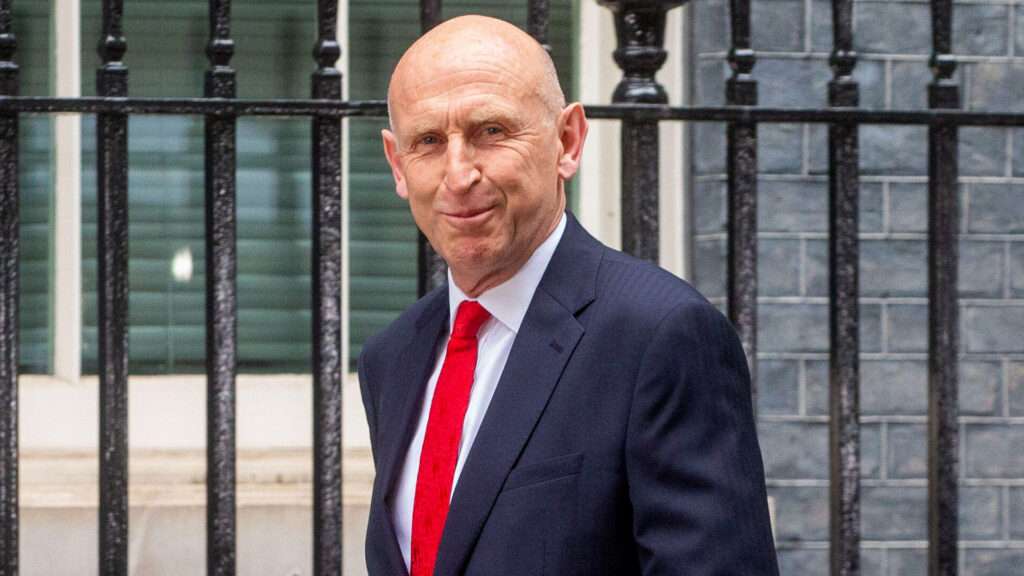
UK Promises Reassurance Force In Ukraine
As part of its pledge, the UK has committed to deploying a “reassurance force” in Ukraine if a peace agreement is struck. Reports have circulated that this contingent may be reduced from the originally floated 30,000 troops, though officials insist Britain’s commitment remains firm.
Concerning whether UK forces would withdraw in the event of renewed attacks, the Defence Secretary rejected the question as hypothetical but emphasized the “important principle that any British forces have the right to defend themselves if attacked.” He added that Britain’s deployment was part of a broader international mission: “the purpose of any British forces is part of a much wider coalition of the willing.”
European leaders believe the coming days will be decisive. If Trump agrees to the proposed guarantees, they say, the prospects of stabilizing Ukraine could dramatically improve. But if Washington remains hesitant, efforts to hold the coalition together may become increasingly difficult.
For now, hopes rest on the ability of Sunday’s discussions to unify Europe’s position before President Zelenskyy’s meeting in Washington.
READ ALSO: Security Analyst Urges Focus on Facts in Helicopter Crash Probe

